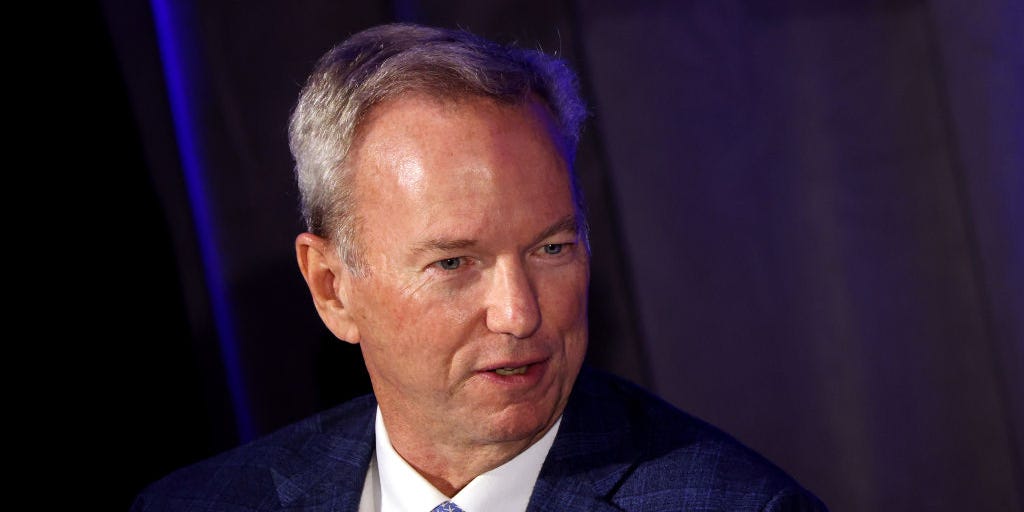- Former Google CEO Eric Schmidt said AI posed an “extreme risk” in some scenarios.
- He told BBC News the technology could be used in “a bad biological attack from some evil person.”
- World leaders discussed the risks and opportunities posed by AI at a summit in Paris this week.
Former Google CEO Eric Schmidt warned of the potential threat posed by AI in the hands of hostile states or terrorists and said it presented an “extreme risk” in some scenarios.
“Think about North Korea, or Iran, or even Russia, who have some evil goal. This technology is fast enough for them to adopt that they could misuse it and do real harm,” he told BBC News, pointing to the risk of weapons being developed for “a bad biological attack from some evil person.”
“I always worry about the ‘Osama bin Laden’ scenario, where you have a really evil person who takes over some aspect of our modern life and uses it to harm innocent people,” Schmidt said.
He was referring to the 9/11 terrorist attacks in the US, where terrorists from Osama bin Laden’s Al Qaeda organization hijacked planes and flew them into buildings.
Schmidt was speaking from the AI summit in Paris this week, where Vice President JD Vance criticized European regulations designed to restrict the technology’s dangers.
Schmidt, who was Google CEO for a decade until 2011, has criticized European AI laws as being too strict, but in the interview, said that it was important for governments to regulate AI.
“It’s really important that governments understand what we’re doing and keep their eye on us,” he said of private sector firms developing the tech.
Schmidt said he backed the Biden administration’s restriction of sales of microchips that power AI to all but 18 countries not deemed to pose a threat.
It’s not the first time Schmidt has warned of the dangers posed by AI. In December he said humans needed to have meaningful control of AI when it’s used in military drones.
His startup, White Stork, is developing drones for Ukraine to use in its war with Russia.
At the summit, Schmidt also addressed China’s rise as an AI tech power, telling The Financial Times the West needs to invest in open source AI models to keep pace.
“If we don’t do something about that, China will ultimately become the open-source leader and the rest of the world will become closed-source,” Schmidt said.
It comes after Chinese firm DeepSeek in January released an AI model developed more cheaply than US rivals such as ChatGPT, roiling stock markets.
DeepSeek’s R1 is itself open-source, as is Meta’s Llama. OpenAI, the company behind ChatGPT, has shifted to a closed-source approach.
Schmidt is 48th on the Bloomberg rich list with a net worth of $35.7 billion, largely derived from his 1% holding in Alphabet, which owns Google.


